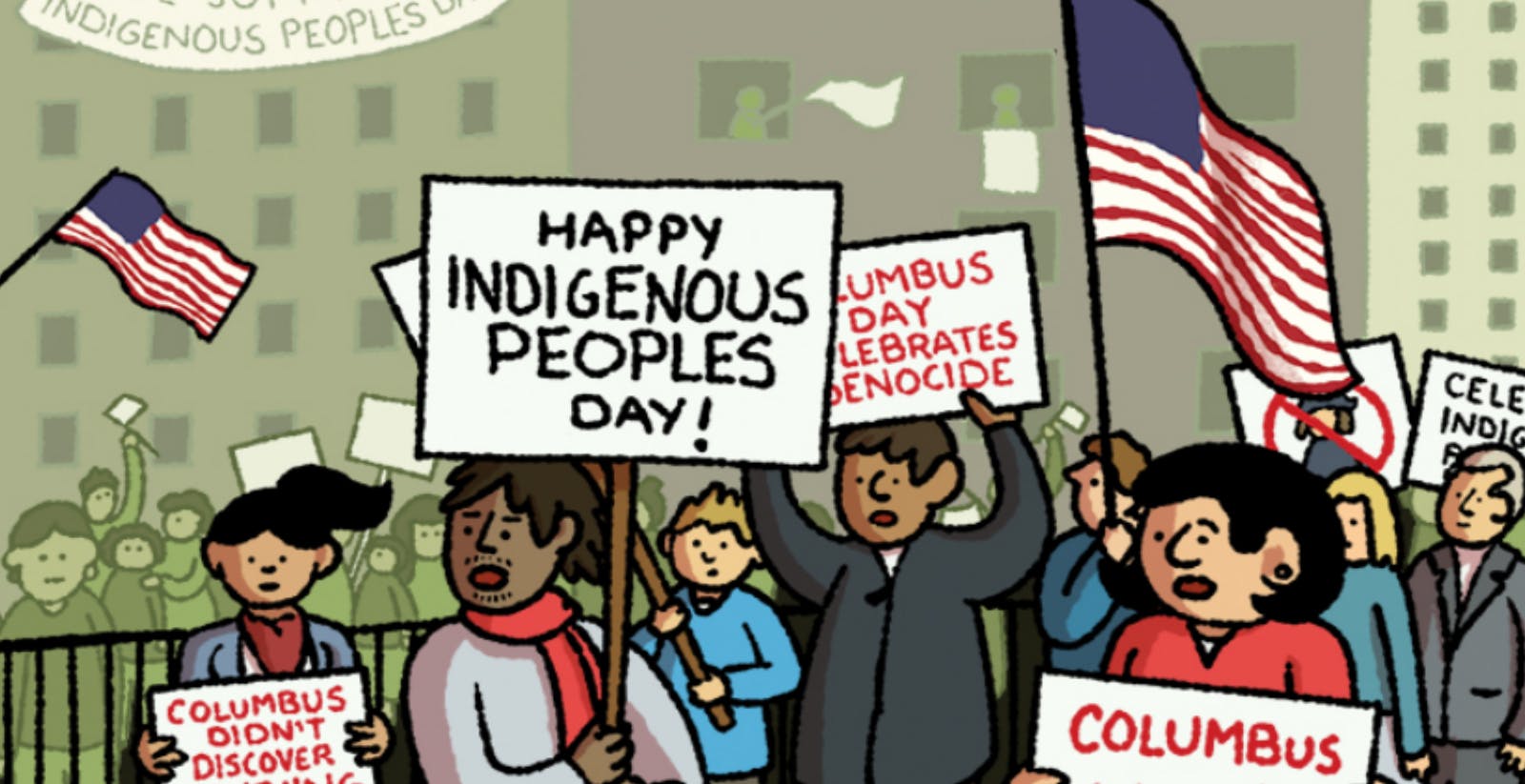
08 Oct HISTORY REFRESH: Columbus Day by Sarah Mill
Grab a seat and get ready to take some notes as we dive into our first of many history refresh lessons where we examine historical people and events with a critical eye. In a time where we are so easily divided by politics and economic status, we cannot deny the history we share. While history cannot be changed, how we understand and discuss it can.
Now, I know change is scary. We hold on to history for the traditions it represents and the comfort it brings. It’s our past and paved the way for where we are today. History, I’ve always been told, is rich with teachable moments.
But are we really learning if we stop at passively accepting the information we are given? My teacher friends out there would say no. So what are we waiting for? It’s time to shake up the system and talk about the controversies surrounding Columbus Day. It all starts by taking a look at the complexities of our past…
What is Columbus Day and what are we celebrating?
Yes, it’s nice to have a day off from school or work. But there’s more to Columbus Day than a long-weekend. Perhaps you remember the clever rhyme that commemorates the American hero. Perhaps, like me, you and your elementary school classmates cheerfully sang, “In 1492, Columbus sailed the ocean blue!”
What were we celebrating? The brave and adventurous voyager who dared to travel uncharted waters to discover unknown land, opening the doors to exploration and colonization of supposedly uninhabited territory. While it’s easy to see this as a noble and honorable feat, the history books left an essential character out of the narrative: the indigenous people.
It’s important to note that Columbus was not alone. He was one in a sea of European explorers motivated by religion, riches, and recognition who wreaked havoc on the native populations they encountered on their various quests. Unfortunately, the more we celebrated colonization by men like Columbus, the more the history of the indigenous people faded into the background– except for the Native Americans on Thanksgiving, of course. History graciously allowed them to live on.
As for Columbus and his comrades? The celebration of their feats manifested into a federal holiday that takes place on the second Monday of October each year. However, the more historians dig into the life and explorations of Columbus and colonization of the ‘New World,’ the more we are reminded of a saying my mother was always reminding me of as I grew up…
There are two sides to every story.
The relationship between Columbus and the indigenous people.
Here’s a new rhyme for you: We celebrate Columbus for sailing the ocean blue, but what about the indigenous people’s point of view?
While Europeans were celebrating the new findings of Columbus, indigenous people were fearing for their lives and mourning the loss of their people. Between violence, slavery, and disease, the indigenous people, who have called the land home long before Columbus stepped foot on the soil, faced the start of long-lasting turmoil.
While the flood of European explorers, like Columbus, took to scoping out the New World, the indigenous people were fighting to hold on to their culture and save the land they called home. However, the biggest obstacle and the deadliest offender was disease.
Native communities struggled against the sudden influx of diseases brought over by the Europeans. From influenza to smallpox, the indigenous populations found themselves faced with fast-spreading diseases they were not equipped to handle. It wasn’t long before native populations began to perish.
The result?
While everyone else has spent hundreds of years honoring the paths paved by Columbus, the indigenous people have been pushed to the side to silently mourn their sufferings of the past and present. While others sing the praise of settlers like Columbus for their ambitions and discoveries, indigenous people are reminded of the near loss of their heritage.
What can we learn from this story?
During the era of colonization, indigenous people were viewed as the “other” who needed to be conquered, retaught, and assimilated to fit into the European standard. Rather than forgetting the story of Columbus, let us use it as an example of the consequences of social injustice. While we traditionally celebrate Columbus Day as a day of exploration and discovery, we must face its representation of our nation’s complex past with racism and discrimination.
Whether you agree with recognizing and celebrating Columbus or not, we all most certainly can learn from him and the narrative he left behind. There’s no doubt that the contributions of explorers like Columbus, as well as the many before and after him, have played a significant role in the birth of the place we call home. However, we mustn’t be blind to the darker realities of the past and the ways they have bled into our present, often unquestioned and undetected.
If you, like I, grew up celebrating Columbus, there’s no need to feel ashamed or wrong. Instead, let us remember how easily our perspectives are shaped by our experiences. Let us celebrate the indigenous people and call attention to the communities those who continue to be marginalized and discriminated against. Let us acknowledge the work that must still be done to fight for social justice and equality in this country.
The work is far from over, but facing the past is an imperative step in shaping the future.
So, where do we go from here?
Do we stop teaching about Christopher Columbus? Not necessarily. I’m not here to deny or erase his existence from American history. Rather, I hope to encourage the examination of this slice of history for the purpose of better understanding and openly discussing the implications of the past to foster more informed decisions today.
Remember, history is a powerful learning tool. We have a responsibility to look at history with a critical lens, just as we would be expected to with any educational material. If we are going to lead for change and equality, we must first be able to critically engage with the past, including both the peaks and valleys.
The truth is, if we want to make way for a brighter tomorrow, we can’t sweep yesterday’s problems under the rug. We need to do the dirty work. We need to dive in to face, understand, and own the past for what it was before we can plant the seeds for what can be.



